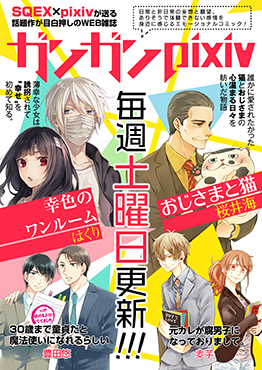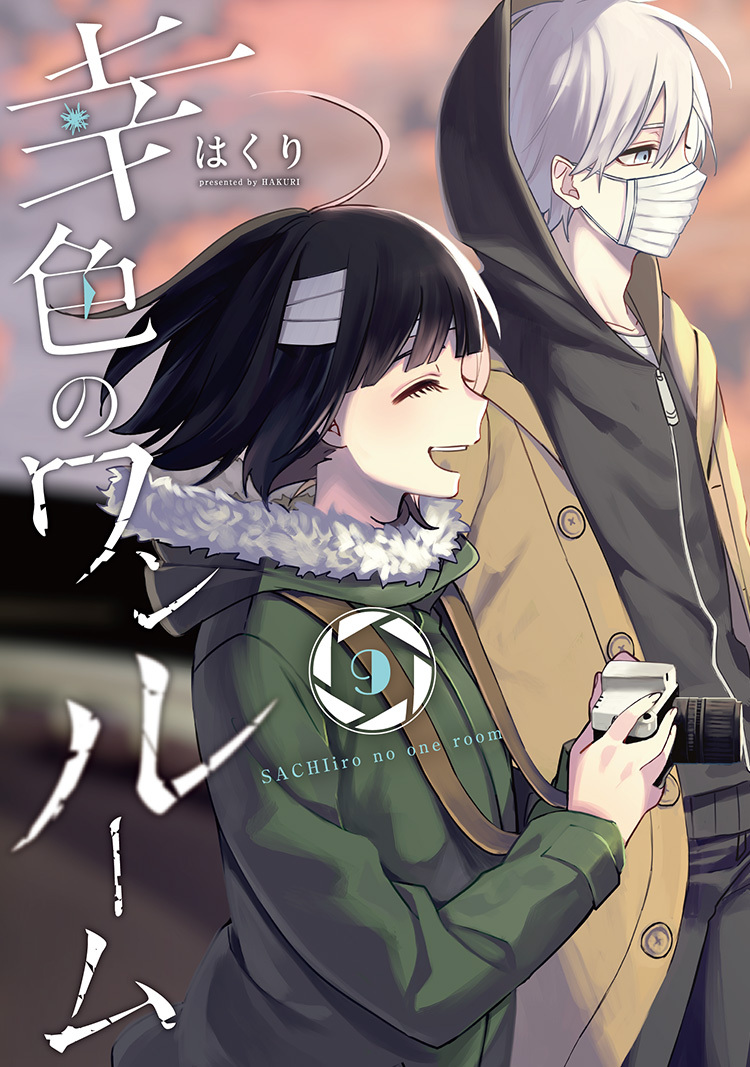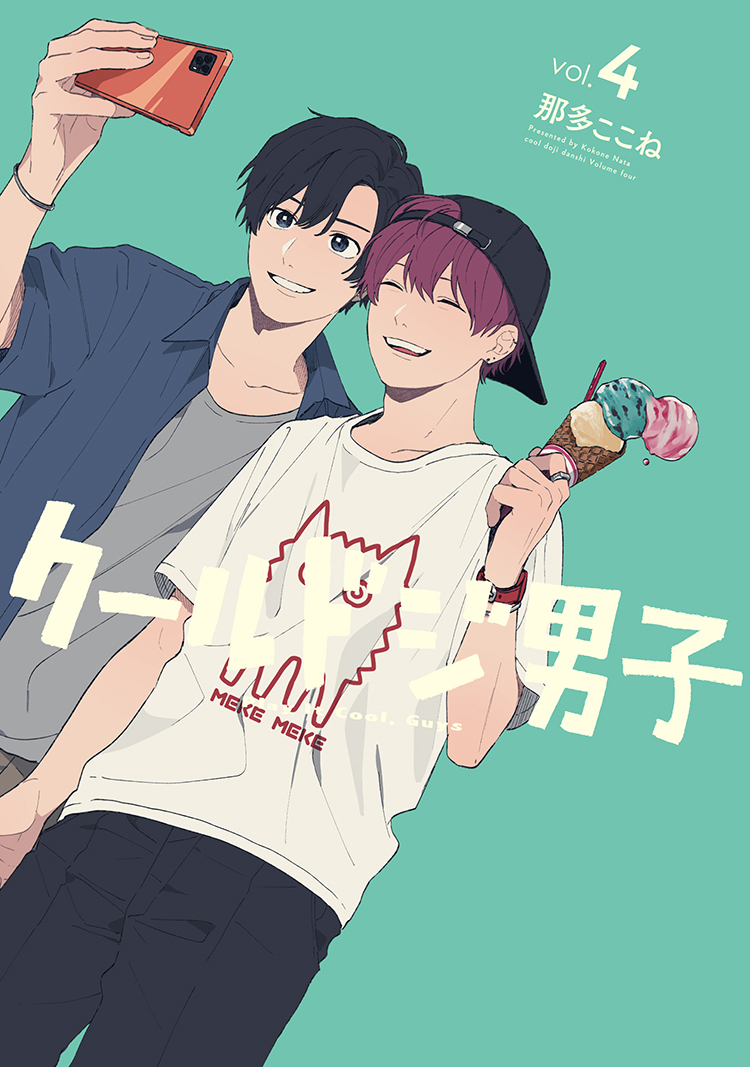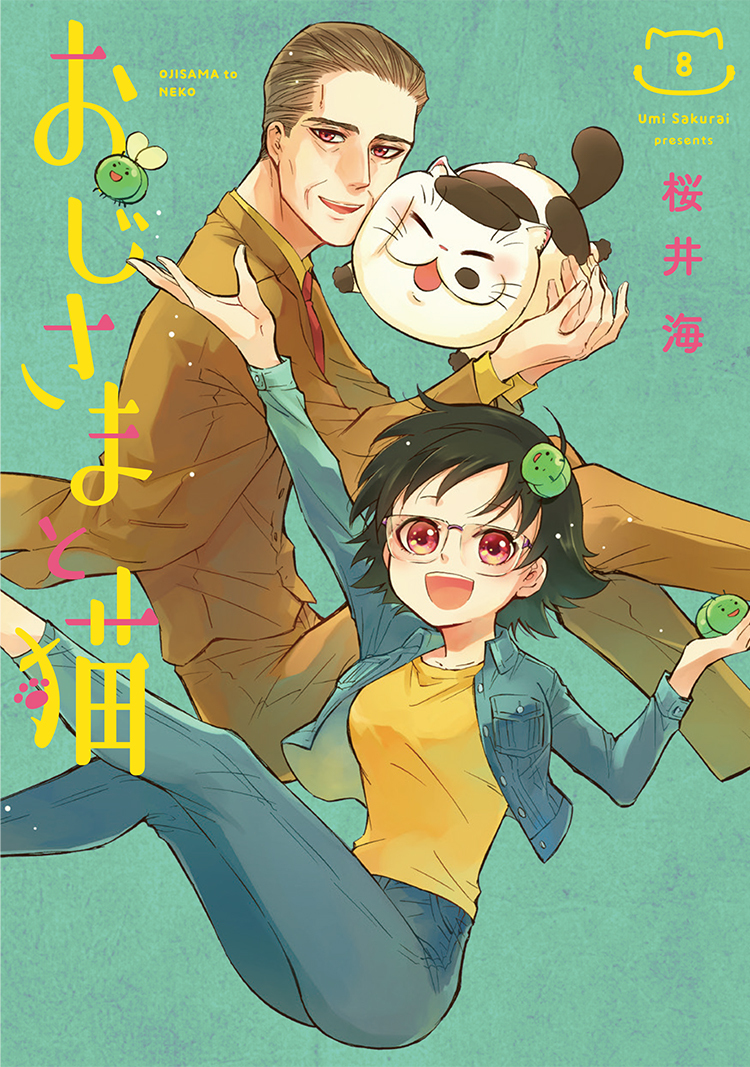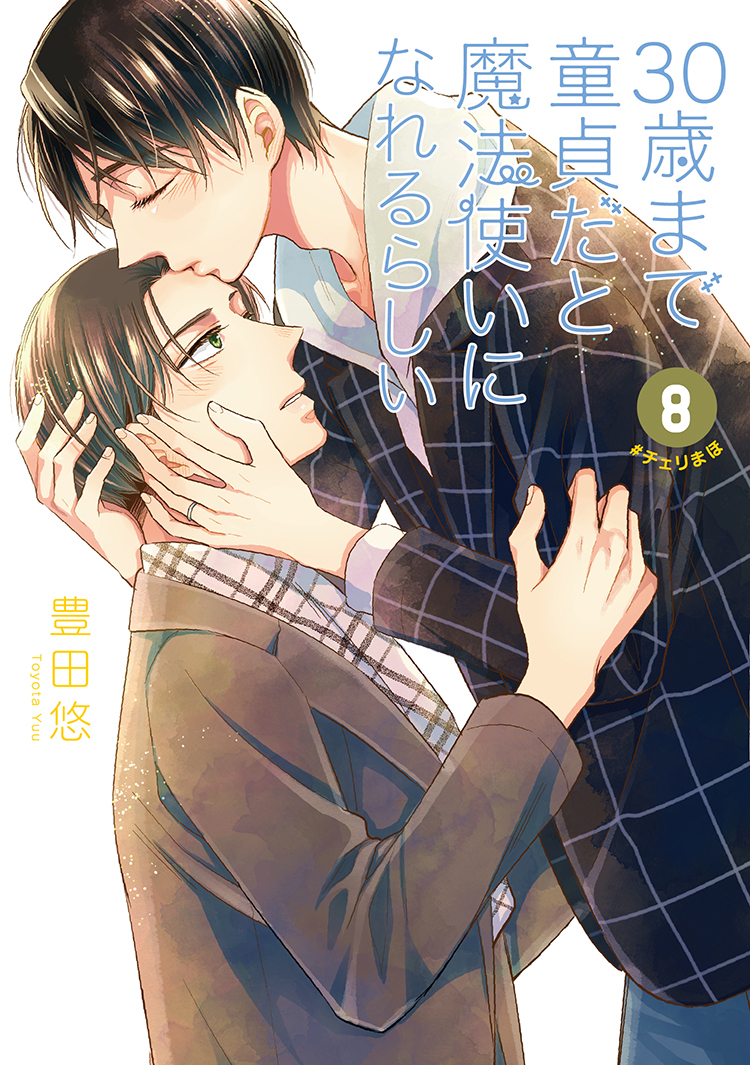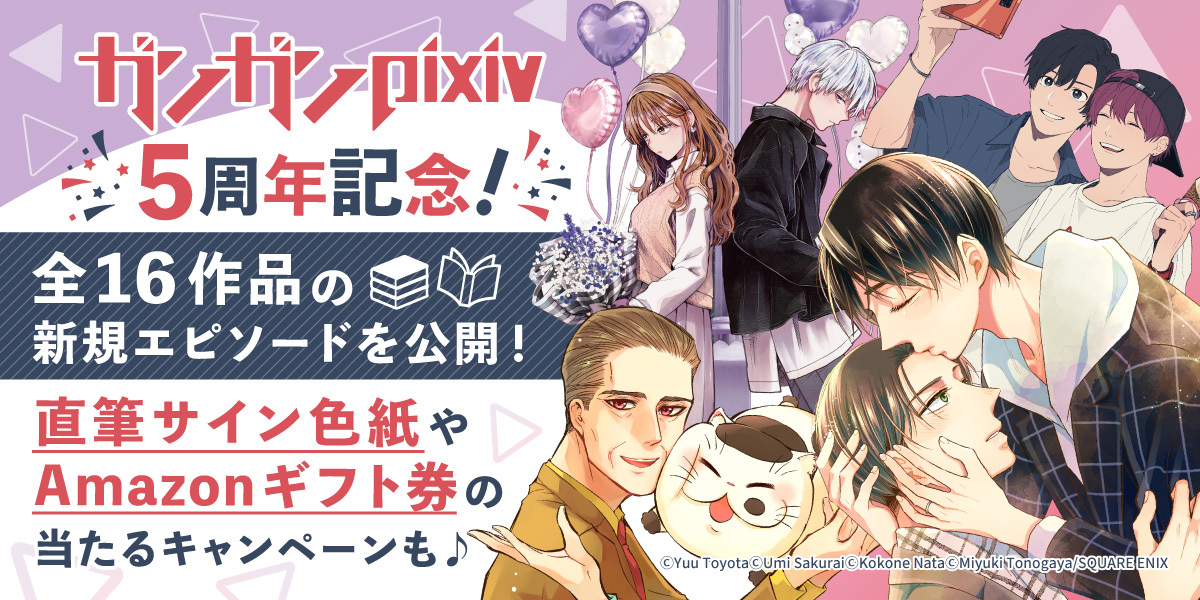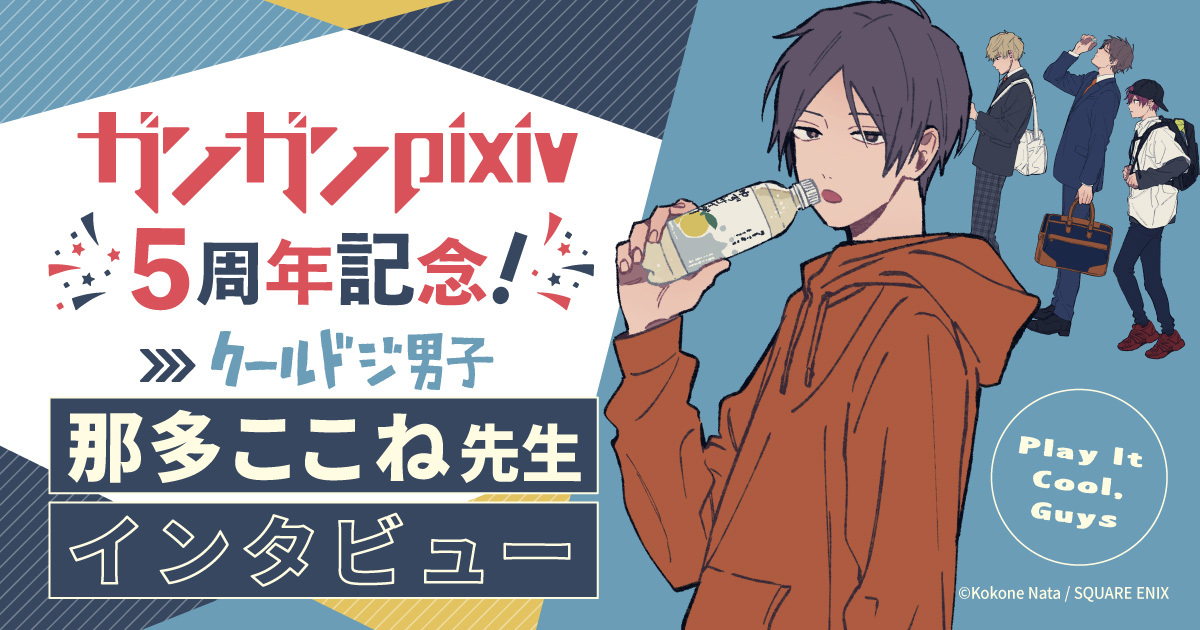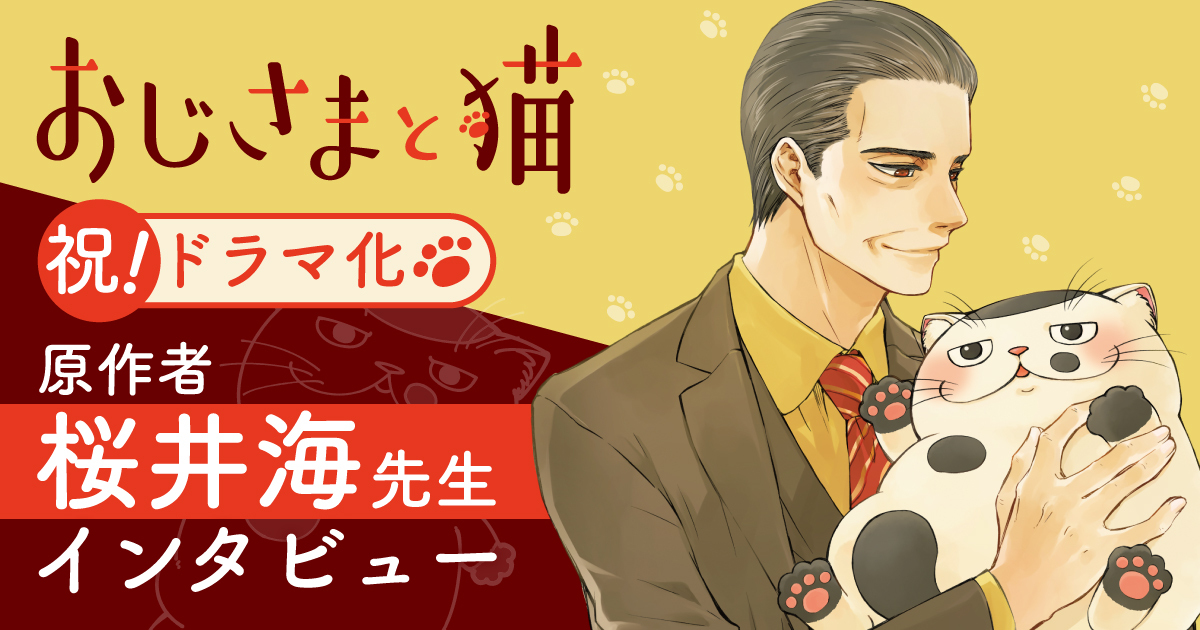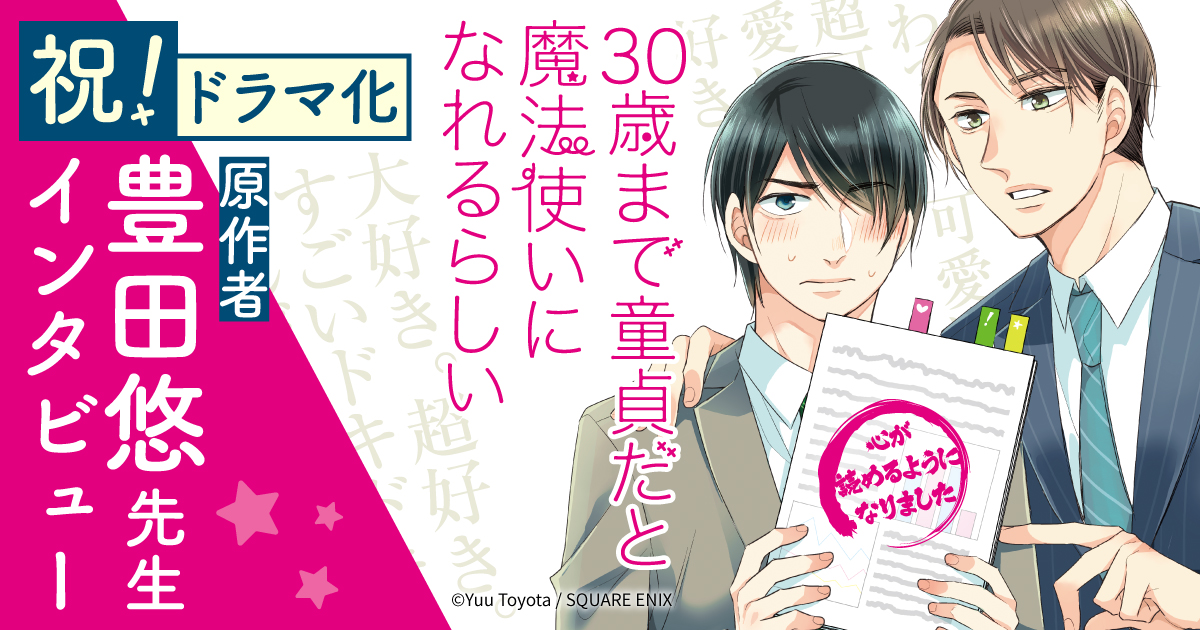Where do editors do their scouting? Do I have to be already famous? The GanGan pixiv editorial team tell us everything about debuting as a manga artist in the age of social media!
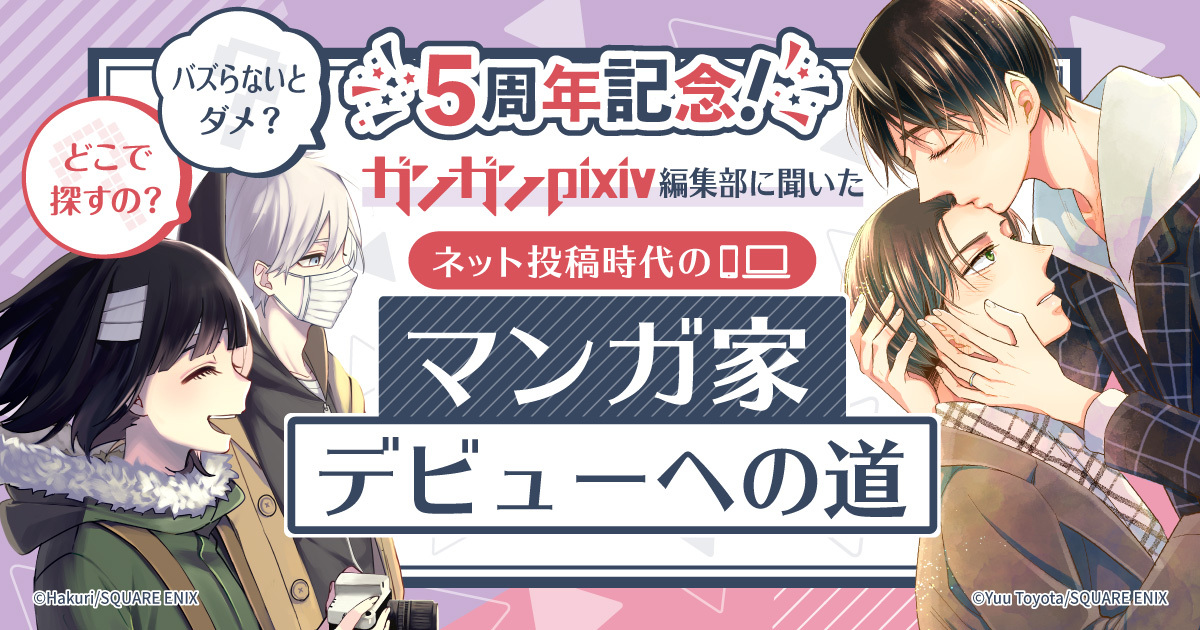
Article by Ichibo Harada @HEW
GanGan pixiv, a web manga magazine by Square Enix and pixiv, has welcomed its 5th anniversary on February 22nd. Over the years, the magazine has published many works originally born on the internet, including Sachiiro no One Room, A Man and His Cat, and Cherry Magic! Thirty Years of Virginity Can Make You a Wizard?!
How much has the world of webcomics changed in the past five years? And what should an aspiring artist keep in mind when using social media to prime the way for their commercial debut? We interviewed GanGan pixiv's editor-in-chief Nakagawa, assistant editor-in-chief Ito, and editorial team member Fukumoto to find out.
On social media, good artists tend to follow other good artists
── First of all, tell us about GanGan pixiv.
── GanGan pixiv has been focusing on manga posted on social media ever since an era when posting manga on social media wasn't that common, right?
── A manga artist once told me a funny story dating back to the same era: they were contacted by someone claiming to be an editor, but pegged the message as a fake and ignored it. Back in the day, weren't the authors surprised to hear from you when you reached out to them?
Fukumoto: Once upon a time, we got a phone call from one of the artists. It went something like, "I got a message from someone who claims to be an editor at Square Enix, is this the real deal?" (laughs)
Ito: It's true, in the early days when the number of manga posts on Twitter had just started to increase we would get a lot of inquiries like that. (laughs) But that's not the case anymore.
── How do you scout new manga on the internet?
More and more commercial artists post their works on Twitter.
── How do you feel the situation surrounding webcomics has changed in the past five years?
Ito: Compared to around 2017, when GanGan pixiv was born, not only has the number of works posted increased, but it has also become common for front-line commercial artists to post their works on Twitter.
Fukumoto: Publishing companies have now become accustomed to checking social media, and the competition to reach out to authors has become fierce. That's why we have to move quicker than ever, and at the same time, find people who have yet to go viral, but also have a high potential. At least that's what I focus on when I'm scouting.
── Do editors get to contact the authors at their own discretion? Or do they have to talk to the editorial team first?
── I see. So you don't waste a minute before contacting popular authors. Have there been any other changes in the past five years?
Nakagawa: Honestly speaking, works that go viral are not necessarily bound to sell anymore. In the past, Twitter was a place for newcomers to post their work, but now, even experienced commercial authors often post the first episodes of their latest series on Twitter. This means that, even if a manga gets a lot of buzz, if it's from a newbie who's still a bit rough around the edges, people may decide to read it on Twitter and call it a day. Things are quite challenging right now.
Ito: In the past, most manga posted on Twitter were compact four-page stories, but now it's common to post longer stories that span multiple tweets. In that sense, I feel that we are living in an age that caters to a wider array of tastes.
Fukumoto: Nowadays, even longer stories can take off as long as they're interesting enough. I think the idea of "the appropriate manga format for Twitter" has faded, and it's now purely a matter of quality. Also, five years ago, many authors would upload their drafts, but now the trend is to post works as well-done as commercial manuscripts.
Do I still have a chance if I'm no good at drawing?
── You can't be contacting every single popular creator out there. What are your criteria for reaching out to an author?
── So people who can't draw don't stand a chance!?
── That's good to know! Ito, Nakagawa, what are the criteria that make you decide whether to reach out to an artist or not?
── What counts as the final idea?
Nakagawa: For example, what the manga selling points are going to be upon release.
Ito: A work with a compelling story doesn't necessarily sell. The editor in charge must have a clear grasp of the key features of the manga ー the ones that will be printed on the tankobon's wraparound band.
── Can you give us an example using one of the works published in GanGan pixiv?
Ito: Take Sachiiro no One Room, which has been serialized in GanGan pixiv since the first issue. It can be described in one sentence: "It's a story about a sad girl who doesn't belong anywhere, but when she gets kidnapped she finds a place where she belongs and is finally happy."
It's a straightforward Cinderella story, where the unfortunate girl eventually welcomes a happy ending, but the way she comes across her happy ending is quite unusual and lures you in. Also, A Man and His Cat can be summed up as "a story where an adult, unwanted cat is taken in by an old man and finds happiness." The plot is somewhat relatable, but at the same time, the unconventional setting is quite appealing to most people. Toorigakari ni One Point Advice Shiteiku Type no Yankee, which Fukumoto is in charge of, offers a new perspective of the scary-looking delinquent youth with a story about a kind and knowledgeable "bad boy."
── I see. In other words, the work must have a clear selling point, and the editor must be well aware of it.
A few sketches and fan art can say a lot about an author's interests
── How much do you check the author's past posts on social media? A person's tweets can say a lot about their personality.
── As an editor, do you also look at sketches? Or only finished works?
── Some artists are ashamed of their old works and end up deleting them. Do you think they shouldn't?
── What could an author do to gain a better standing in the eye of an editor?
Ito: Browsing through artwork on Twitter is kind of hard because we have to skim through dozens of daily updates. When an artist has dedicated space to show all their artworks, like a pixiv profile, our job is way easier.
Fukumoto: When a Twitter profile doesn't include a link to the artist's pixiv profile, I usually try to search for their name directly, but sometimes people use different names on different social media... Editors would appreciate it if you could create a clear connection between Twitter and pixiv.
Ito: Oh, and contact information. It takes some guts to put your email address online, and I understand everybody has their own problems, but sometimes we can't find a single way to contact the artist. Tweet replies end up buried, so... Please allow direct messages from everyone on Twitter!
An environment where writers and editors can work together through trial and error
── A simple question: do authors ever reject the editors? For example, if they got a better offer from a different company.
Ito: It happens a lot. (laughs) In many cases, we don't even get a response. Many people aren't interested in commercial work, or used to be before finding out they're not suited to it and deciding to stay in the doujin world.
Fukumoto: For every 10 people we contact, we hardly ever get a single manga published. First of all, very few get back to us, and even fewer are actually interested in making their debut as commercial artists. But well, it's the hardships that make this job interesting.
── I see! What do you discuss during your first meeting with the author?
Ito: First, we tell them why we reached out to them and ask them what they have in mind for their work, and then we compare ideas. We know it's a nerve-wracking situation for the artist, but rest assured that the same goes for us editors! (laughs)
Fukumoto: In the first meeting, we talk about each other's tastes and the result is closer to a self-introduction or a meet-and-greet rather than a business discussion. When we contact an author, it's because we think their work is great ー remember, we're 100% on your side. It's not a job interview, so there's no need to be anxious.
── You mentioned that the competition among publishing companies to get authors is becoming more and more fierce. What do you think GanGan pixiv has to offer amid this competition?
── Last but not least, do you have a message for those who are interested in making their commercial debut?

